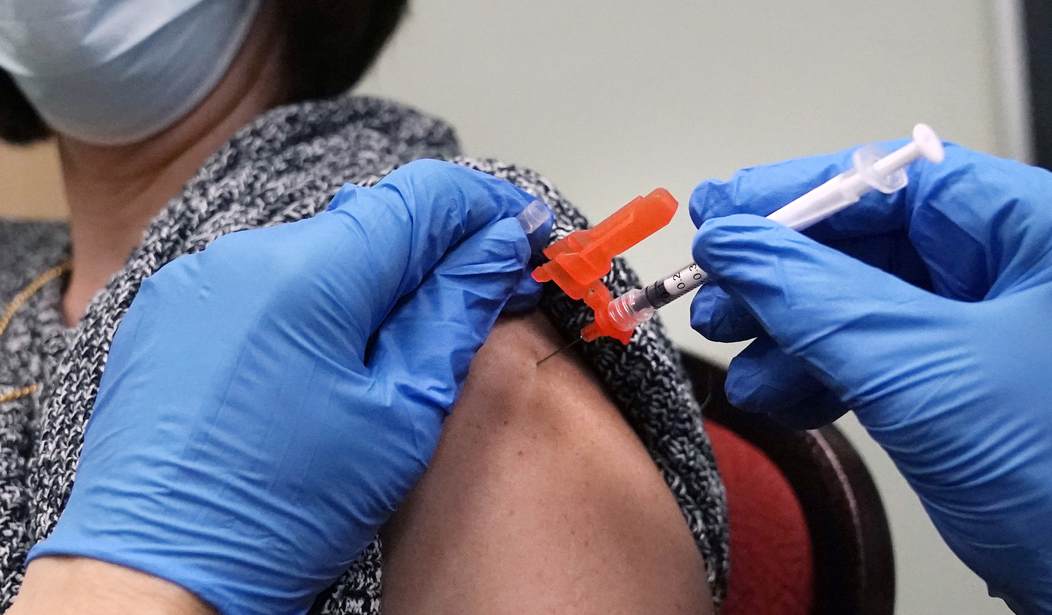The short answer is, in the near term, “Not much.” And what little effect they do have is on net toward the bad.
This answer shouldn’t surprise anybody, and it directly contradicts the narrative that “gender-affirming care” for children is “lifesaving.”
The news comes from a too-small British study that examined the short-term results of children placed on puberty blockers to treat their diagnosed gender dysphoria.
The mental health of the subjects given puberty blockers in this experiment was more likely to decline than improve. The BBC 's headline seems designed to obscure that. https://t.co/aWL4fydMdI
— Kay Hymowitz (@KayHymowitz) September 19, 2023
The BBC’s report on the study is technically accurate, as many MSM stories are, but presented in a way to hide the fact that the net effect of puberty blockers is negative for the treatment group.
The study is, as so many are these days, observational and not a randomized controlled trial, and would likely be biased toward finding a positive benefit for a number of reasons. The children involved, for instance, have gone to great effort to get these puberty blockers and are predisposed to believe that taking them would help their condition. Instead, the majority found the opposite to be the case.
This particular study was a reanalysis of a prior study using the same data, but rather than just looking to see the average effect on children it looked for the scale of the move in whatever direction the patient had. In other words, it didn’t just produce an average of the experiences, which showed no discernable benefit among the treated children, but also quantified how many improved, how many got worse, and how many had no change.
One would have imagined that the first analysis should have included this data, but apparently not.
The majority of children in a landmark study on puberty blockers experienced positive or negative changes in their mental health, new analysis suggests.
The original study of 44 children, who all took the controversial drugs for a year or more, found no mental health impact – neither benefits nor harm.
But a re-analysis of that data now suggests 34% saw their mental health deteriorate, while 29% improved.
The authors of the original report have welcomed the new evidence.
The re-analysis, which has been seen by BBC Newsnight, questions some of the conclusions from the 2021 study about the potential mental health impact of puberty blockers on under 16s. It also sheds some light on this much-debated, but little understood, area of children’s medicine.
Until recently Great Britain had a policy of transing kids on little to no evidence of genuine gender dysphoria, and the treatments included puberty blockers for children despite the dearth of any evidence that they work. And as the evidence rolled in it demonstrated that the treatments more often than not made things worse or had no positive effect. Fewer than a third experienced a benefit.
Needless to say, this is not how medicine is supposed to be practiced.
Prof Susan McPherson, from the University of Essex, and David Freedman, a retired social scientist, have since re-analysed the data. They instead looked at the individual trajectories of each of the young people in the early intervention study.
They found, after 12 months of puberty blocker injections – 34% of the children had reliably deteriorated, 29% had reliably improved, and 37% showed no change, according to their self-reported answers.
The proportions were a little lower in the parents’ scores, but in three quarters of the cases, there was broad agreement between parents and their children.
The impact on each of the children varied.
For a child who “deteriorated”, it could mean moving from being psychologically well and not needing treatment for their mental health, to meeting criteria for a psychiatric diagnosis such as depression or anxiety. Whereas a child who “improved” could move from needing mental health treatment to being considered mentally well.
What is most shocking among the vast number of shocking things regarding the treatment of gender dysphoria is that the medicalization of the syndrome is justified based on claims that mental health is imperiled if the condition is NOT treated. Yet in almost all cases the children who get medicalized are never treated for the mental illness that is used to justify the medical treatment.
We are told that the children are at risk for suicide, but the preferred “treatment” is not support for mental health improvement, but blocking puberty. There is now a large body of evidence that these treatments don’t work, and they produce both mental and physical harm.
On its face–without needing anything more than common sense–failing to treat any patient judged at risk of suicide (most of the patients are not at risk of suicide–the claim is based on a generalized increased risk of suicide among this population, not an individual diagnosis) is malpractice. Suicidality is an emergency and should be the first thing to be addressed. A doctor seeing a patient for chronic Type II diabetes doesn’t spend time discussing diet and exercise with a patient who is also suicidal–she treats the mental health crisis first.
Every single time.
This is the opposite of the general practice in “gender-affirming” care, which often ignores mental health in favor of medical treatments. The result is often a deterioration of the mental health of the patient or no improvement in the condition the doctor claims is the crisis justifying medical treatment.
A 70%+ failure rate–at least–in improving the condition, accompanied by a more than 30% risk of worsening it, cannot be considered good “care.”
But there it is. And we all know that over time the numbers will get worse, not better.








Join the conversation as a VIP Member